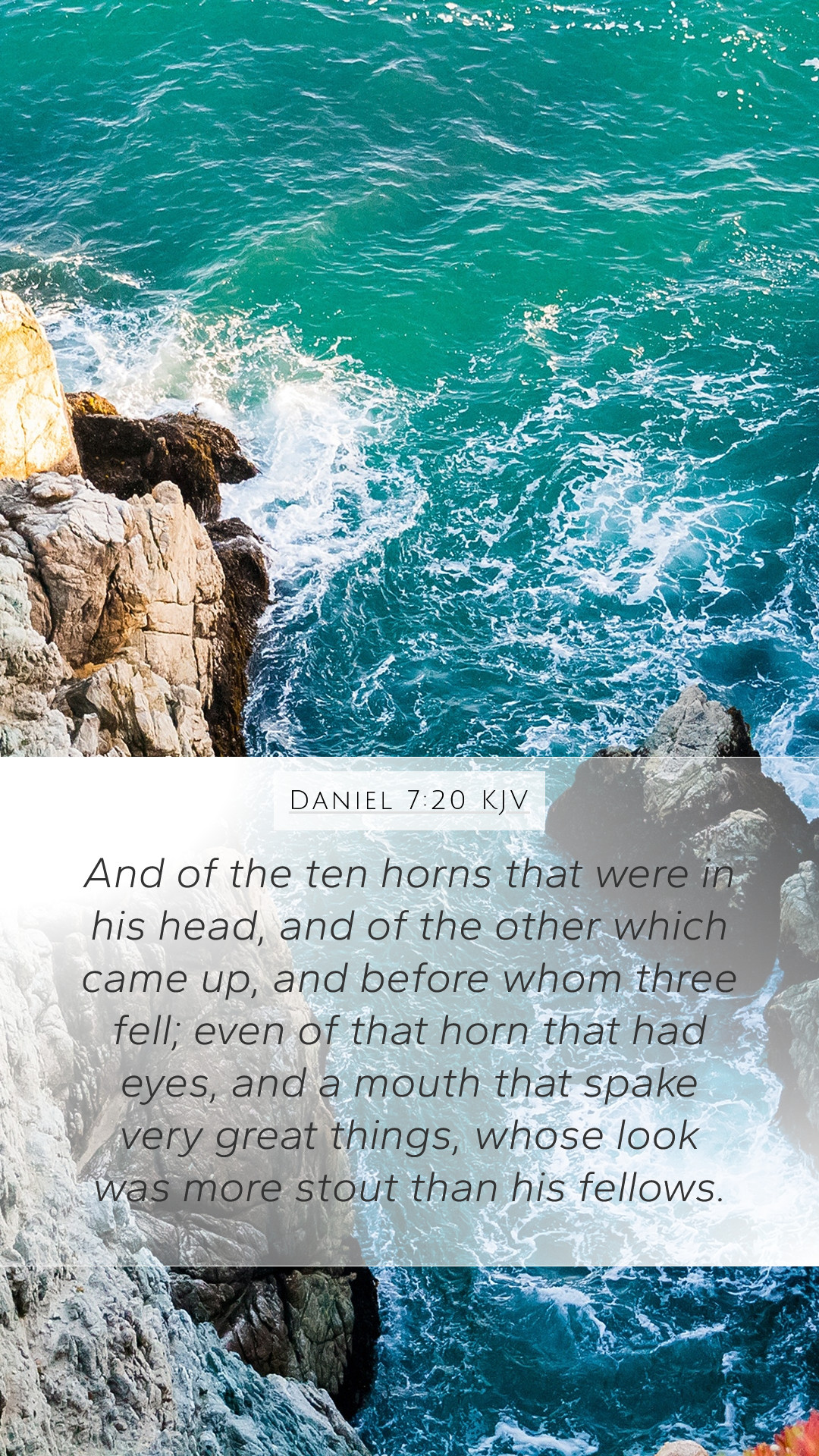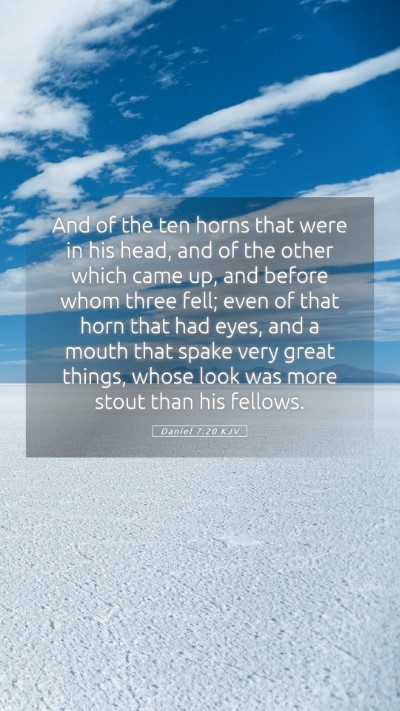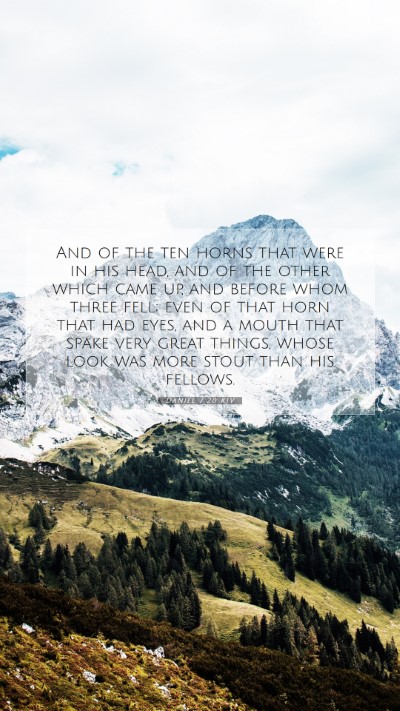Exegesis of Daniel 7:20
Daniel 7:20 is a verse rich in meaning, requiring careful analysis to understand its implications within the broader context of Biblical prophecy and apocalyptic literature. This verse discusses the fourth beast and its characteristics, particularly focusing on the little horn that emerges and speaks with great arrogance. Below, we will outline key insights from public domain commentaries to facilitate a deeper understanding of this scripture.
Verse Text
"And of the ten horns that were in his head, and of the other which came up, and before whom three fell; even of that horn that had eyes, and a mouth that spake very great things, whose look was more stout than his fellows." - Daniel 7:20 (KJV)
Individual Commentary Insights
-
Matthew Henry's Commentary:
Henry emphasizes the significance of the ten horns, representing ten kings or kingdoms that are symbolically in opposition to God. The "little horn" is often interpreted as a symbol of a powerful and blasphemous figure who arises from these kingdoms, embodying pride and rebellion against the divine order. Henry suggests that the arrogance of this horn signifies profound spiritual consequences, representing the antichrist spirit that corrupts the faithful.
-
Albert Barnes' Notes:
Barnes elaborates on the characteristics of this horn, noting its ability to speak great things, which signifies its pride and arrogance. The horn's "look" being stout indicates its boastfulness and intimidation. Barnes links this to other prophetic literature in the Bible, referencing the judgment that befalls those who oppose God's will and the ultimate defeat of such forces through divine intervention.
-
Adam Clarke's Commentary:
Clarke provides additional context concerning the historical and prophetic implications of the text. He correlates the beasts' vision with the timeline of empires and highlights that the vision serves as a warning to the people of God regarding the trials and tribulations that would come as a result of these oppressive regimes. He stresses the importance of understanding the sovereignty of God despite the oppression represented by the "little horn."
Key Themes
The exploration of Daniel 7:20 unveils several significant themes relevant to Bible verse understanding:
- Imagery of Power: The depiction of the beast and the horns exemplifies the oppressive power structures that stand against God's kingdom.
- Spiritual Warfare: The little horn serves as a reminder of the trials that believers face from those who challenge their faith.
- Divine Sovereignty: Despite the tribulations signified by the little horn, the overarching narrative assures readers of God's ultimate control over history and prophecy.
- Call to Faithfulness: The passage encourages believers to remain steadfast in their faith amidst adversity arising from powerful adversaries.
Related Cross References
- Revelation 13:1-2 - A description of the beast that arises from the sea.
- 2 Thessalonians 2:3-4 - Discussion about the man of sin and his blasphemy.
- Daniel 8:9-12 - Another reference to the horn that arises and grows exceedingly great.
- Revelation 17:12 - Commentary on the ten kings and their association with the beast.
- Isaiah 14:13-14 - A mention of pride similar to that of the little horn.
Applying the Insights
Understanding Daniel 7:20 is crucial for anyone engaging in Bible study lessons or participating in online Bible study. It enhances Bible study insights into the nature of prophetic literature and the recurring theme of God’s sovereignty contrasted with human arrogance. This interpretation also encourages readers to contemplate how to apply these ancient truths to modern struggles against injustice and pride.
Conclusion
The study of Daniel 7:20 serves as a profound reminder of the importance of humility before God and the dangers posed by prideful entities, as exemplified in the "little horn." Through a collective analysis of public domain commentaries, readers are equipped with a richer understanding of this scripture, fostering further reflection on its implications in both historical and contemporary contexts.
Keywords
This commentary intertwines essential information for those searching for Bible verse meanings, Bible verse interpretations, and Bible verse explanations. It stands as a valuable resource for Bible study groups, and serves as a guide for understanding scripture through biblical exegesis.


